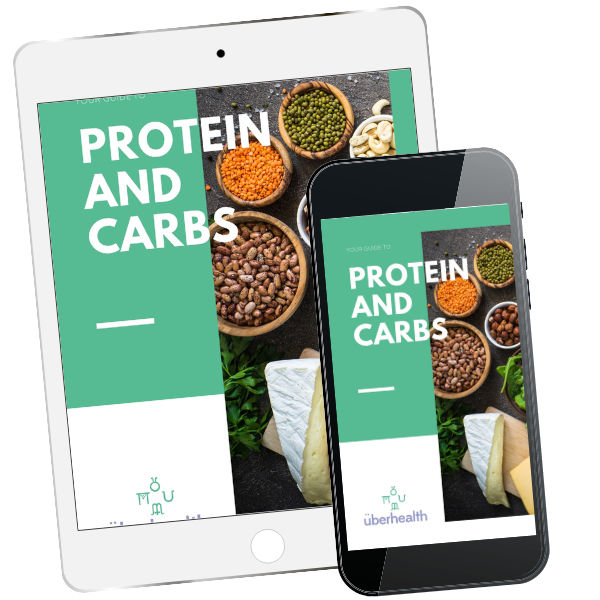Finding routine in the chaos

I’ll admit it — I’ve been a bit hesitant to write this month’s blog. My inbox is bursting with “how to stay healthy” lists, online workouts, and immune-boosting tips. So I’ve been wondering... do I really need to add to the noise?
But instead of sending out another list of must-eat superfoods or asking you to join my imaginary online fitness class (don’t worry, I’m not a PT), I thought I’d share what I’ve actually learned about trying to stay healthy during this isolation “vacation.” And yes — I know this isn’t a real holiday. But with the Easter break just gone, I’ve been pretending it is.
Why Routine is the Real Superpower
Last year I gave a lecture series around Australia, and one of the big takeaways was the power of routine and our circadian rhythm. Our bodies love a schedule. They feel safe, settled, and more willing to let go of stress, poor sleep — even those stubborn few kilos.
And what better time to lean into routine than lockdown? While it might sound boring, structure is exactly what helps us feel in control when everything else feels chaotic. The more we can build a sense of order, the more we support our wellbeing (and immune system, which gets knocked around by stress and elevated cortisol).
Keep It Simple: Sleep and Mealtime Rhythms
Start by going to bed and waking up at the same time every day. Yes, even you night owls.
Then, focus on mealtimes. I’m not suggesting you overhaul your whole diet while life is upside down — but a few simple tweaks can save you from needing a 12-week detox once we’re released back into the wild.
Let’s begin with the obvious: the Easter eggs. Finish them. Then stop buying the foods you know you shouldn’t be eating. If it doesn’t come home in your grocery bag, it can’t tempt you from the pantry shelf.
Pantry Clean-Out: A Game Changer
One of the most helpful things you can do right now is give your pantry and fridge a good clean-out. Stock them only with foods that support your health. Yes, treats can feel like comfort in stressful times, but food rewards won’t solve stress.
If you don’t trust yourself with “just two squares of chocolate,” you’re not alone — I’ve told myself the same thing many times and it rarely ends well (and neither have 90% of my clients!).
The Great Snack Attack of 2020
In my house, the kitchen has become the go-to spot whenever anyone needs a break from work or school. But let’s be real — constant snacking quickly doubles your food intake.
Even if your pantry is now full of healthy food, eating a whole jar of macadamias or half a tub of hummus still isn’t ideal every time you take a “brain break.”
So what’s the fix?
Stick to three meals a day. Yep, just three. Add a snack only if you're genuinely hungry — not just bored or avoiding your inbox. If you’re doing a solid amount of exercise, maybe allow one snack per day, but otherwise, see how your body responds without grazing every hour.
Your Gut Likes a Routine, Too
Circadian rhythms don’t just affect your sleep — they apply to your digestion as well. Our digestive fire is strongest in the morning and early afternoon, which is why eating your bigger meals earlier in the day can help with digestion, blood sugar regulation, and energy. Even insulin has its own rhythm!
So whenever possible, time your meals to match your body’s natural rhythm.
Try This Challenge For a Week
Here’s a little structure you can try this week:
- Only snack if you feel actual, physical hunger.
- Take work breaks with a herbal tea or a change of scenery — sunshine on the balcony, a short walk, some deep breathing.
- Still feel like you're raiding the fridge too often? Bring in my old favourite: the food diary.
Leave it on the fridge and write down everything you eat and drink, including the time. You’ll be surprised how often mindless snacking slips under the radar, especially if it happens in front of a screen.
The Takeaway
I’m not here to promise miracles — no magic immune hacks or global solutions. But I am here to remind you that the basics matter. The small steps you take now can make a big difference to your health while we continue life at home.
Recap: The Two Big Focus Areas
Routine:
- Time you wake
- Time you go to sleep
- Time you eat meals
- Time you exercise
Awareness:
- What and how much you’re eating
- Snacking habits
- How your daily habits support or derail your goals
Keep it simple. Stay consistent. Be kind to yourself. And don’t forget — a little structure goes a long way.
FREE RESOURCE


